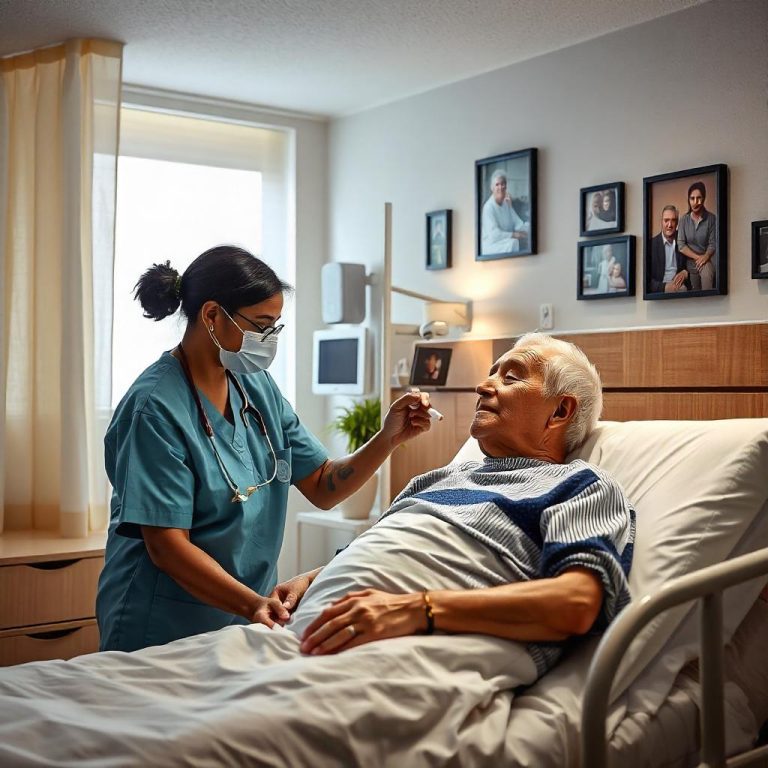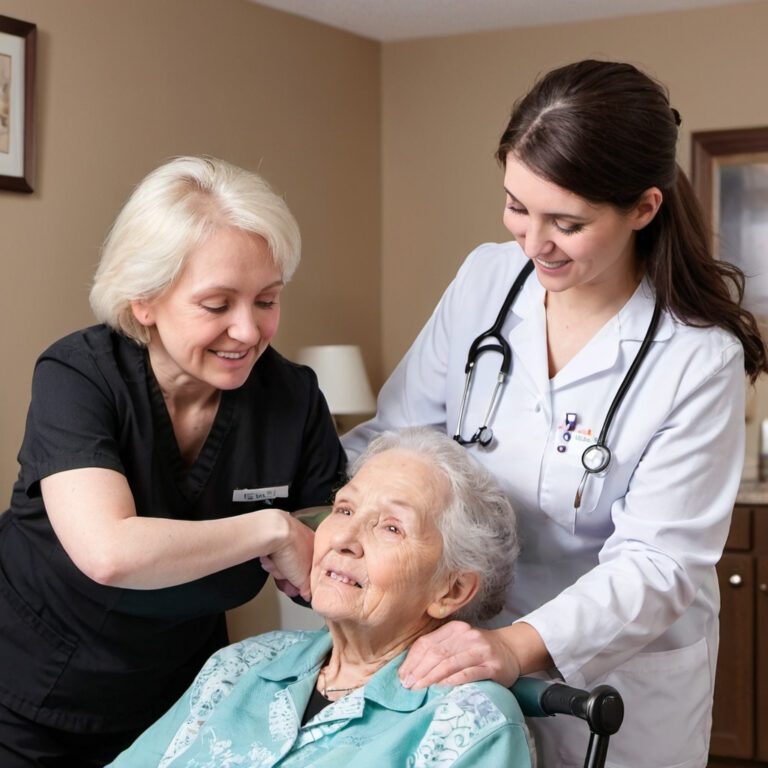As seniors age, they may require assistance with daily activities that were once simple to complete. Personal care for seniors at home plays a critical role in helping them maintain their dignity, independence, and overall quality of life. Personal care services typically include assistance with activities of daily living (ADLs), offering physical, emotional, and social support in the comfort of the individual’s home.
Here’s an overview of the types of personal care services available for seniors at home:
1. Assistance with Activities of Daily Living (ADLs)
Personal care services often focus on helping seniors with essential daily tasks that may become difficult due to age, illness, or disability:
- Bathing and Showering: Assistance with bathing or showering ensures hygiene, reduces the risk of infections, and promotes a sense of well-being.
- Dressing: Helping seniors choose and put on appropriate clothing. This service is particularly useful for seniors with mobility issues, arthritis, or cognitive impairments like dementia.
- Toileting: Assisting with bathroom needs while ensuring privacy and maintaining dignity. This includes helping with transfers to and from the toilet and ensuring proper hygiene.
- Grooming: Helping with brushing teeth, combing hair, shaving, and other grooming needs that contribute to the senior’s sense of self-care.
- Eating Assistance: Some seniors may require help with meal preparation or feeding, especially if they have physical limitations or cognitive challenges.
These services are tailored to individual needs and can be scheduled according to the level of assistance required.
2. Mobility Assistance
Maintaining mobility is crucial for seniors to remain independent. Personal care providers assist with:
- Walking: Offering support while walking or walking aids, reducing the risk of falls, and improving overall mobility.
- Transfers: Helping seniors get in and out of bed, chairs, or wheelchairs safely.
- Exercise: Assisting with light physical activity, such as stretching or strength-building exercises, to maintain muscle strength and flexibility.
Regular movement and assistance with mobility contribute to seniors’ physical health and overall well-being.
3. Medication Management
Many seniors take multiple medications for chronic conditions, and medication mismanagement can lead to serious health issues. Personal caregivers help with:
- Medication Reminders: Ensuring that medications are taken on time and in the correct doses, which can prevent adverse health effects.
- Organizing Medications: Caregivers can help organize medication schedules, whether it’s setting up a pillbox or using other tools to track medications.
- Administering Medication: In cases where seniors require medical expertise, a nurse or home health aide may administer medications or injections under a physician’s guidance.
Proper medication management ensures that seniors stay on track with their treatments, helping to prevent health complications.
4. Companionship
Personal care services also offer companionship, which is essential for seniors’ emotional and mental well-being:
- Social Interaction: Caregivers can engage in conversations, play games, or participate in hobbies, reducing feelings of isolation.
- Emotional Support: Having someone to talk to or share experiences with can help alleviate depression or anxiety, which are common among the elderly.
- Outings and Activities: Companion caregivers can help seniors attend social gatherings, family events, or simply take walks outside, which can provide both mental stimulation and social benefits.
The presence of a caregiver also gives family members peace of mind, knowing that their loved ones are receiving social interaction and emotional support.
5. Household Assistance
While not always considered part of “personal care,” household tasks are often integrated into home care services. These tasks may include:
- Light Housekeeping: Assistance with tidying up the home, making the bed, and doing laundry.
- Meal Preparation: Preparing nutritious meals that meet specific dietary requirements, such as low-salt or diabetic diets.
- Grocery Shopping: Running errands or helping with grocery shopping to ensure the senior has everything they need.
- Cleaning: Ensuring that the home remains safe and clean by performing light cleaning tasks like vacuuming, dusting, and disinfecting surfaces.
A clean, organized living space contributes to the senior’s safety, comfort, and general well-being.
6. Dementia and Alzheimer’s Care
Seniors with dementia or Alzheimer’s disease often require specialized care. Personal care providers trained in dementia care offer:
- Cognitive Stimulation: Engaging in activities that stimulate memory and cognition, like puzzles, games, or storytelling.
- Routine Management: Establishing a structured daily routine that helps reduce confusion and anxiety in individuals with cognitive impairments.
- Safety Monitoring: Ensuring the home is safe by preventing wandering, locking doors, and removing potential hazards that could lead to injury.
- Behavioral Support: Addressing behavioral issues associated with dementia, such as agitation, aggression, or confusion.
A caregiver with experience in dementia care provides comfort, safety, and familiarity to individuals struggling with memory loss or cognitive challenges.
7. End-of-Life Care
In cases where seniors are dealing with terminal illnesses, personal care services may also include palliative or hospice care, focusing on:
- Pain Management: Ensuring that the senior is as comfortable as possible by managing pain and other symptoms.
- Emotional and Spiritual Support: Offering counseling and comfort to both the senior and their family members during this challenging time.
- Companionship: Providing social interaction, reducing feelings of loneliness, and maintaining dignity during the final stages of life.
End-of-life care is focused on ensuring the senior’s comfort and quality of life during their final days.
How to Arrange Personal Care for Seniors at Home
To arrange personal care for a senior at home, you can take the following steps:
- Assess the Needs: Determine the level of care required based on the senior’s condition and abilities. Consider factors like mobility, cognitive function, and medical requirements.
- Consult Healthcare Providers: Speak with doctors or healthcare professionals to create a care plan and determine what specific services are needed.
- Choose a Home Care Agency: Research licensed and reputable home care agencies that provide personal care services. Many agencies offer free consultations and assessments.
- Hire Independent Caregivers: If you prefer hiring independently, search for experienced caregivers through referrals or online platforms. Be sure to conduct interviews, check references, and verify background checks.
- Explore Insurance and Payment Options: Many insurance plans, including Medicaid and Medicare, may cover certain personal care services. It’s important to check coverage options to help manage costs.
Personal care for seniors at home provides many benefits, from maintaining independence and dignity to improving health outcomes. It helps ensure that seniors live comfortably and safely, with the support they need to continue enjoying their lives.






